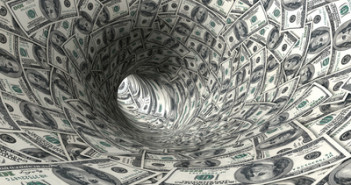Stock markets pay little attention to what central bankers have to say, and this also applies to the “stretched valuations” comment heard from the Fed lately, says Simon Smith of FxPro. He explains how this comments counteracts the impact of QE, if it does have influence after all.
In the interview below, Smith also talks about a preferred EUR/USD level for the ECB’s inflation target, wage growth and more.
Simon has over seventeen years experience of macro forecasting and investment strategy research. Prior to joining FxPro in May 2010, Simon was a consultant with Thomson Reuters, having spent four years as Chief Economist at Weavering Capital. He has held economic and strategy positions with Standard & Poor’s, together with consultancy firms 4Cast and MMS International. Simon holds an MSc. in Economics from the University of London and a BSc. from Brunel University.
The Fed released an unusual comment about “stretched valuations” in some sectors of the equity market. Can we see it as a first hint that rate hikes are coming sooner than later?
No. Firstly, talking down asset markets actually counteracts the impact of QE, so everything else equal acts as a tightening of policy. If anything you could say that this could delay tightening, if successful. But the second thing is do markets care? Equities continued to rally more than 3 years after former Fed Chair Greenspan’s infamous ‘irrational exuberance’ comment of late 1996, which suggest that asset markets don’t put much weight on the opinions of central bankers. The caveat to this is the fact that the Fed has player a powerful part in the rally of the past few years via its QE program. Furthermore, the rally has been stronger than that seen ahead of Greenspan’s comments.
The pound shrugged off another drop in UK unemployment and focused on earnings. Do you think that in the UK and perhaps also in the US, wage inflation will overshadow both inflation and jobs?
Not necessarily. Subdued real wage growth is something that both the UK and more so the US has had to learn to live with, even during the pre-crisis era. The rewards to labour are diminishing. But that should not deter central bankers from at least partially removing some of the policy accommodation that currently exists, given the risks of contributing to further asset price over-valuations that lead to further problems down the road. As always with central bankers, it’s about balancing differing priorities and signals. I get the impression that on both sides of the Atlantic central bankers are becoming more cognisant of the risks of near zero interest rates.
The RBNZ is meeting this week after seeing a surprisingly low inflation rate. Could they pause now or perhaps hint of an easier tightening cycle?
I would place a low probability of them pausing. I think more likely is that they follow through and hike rates to 3.50%, but are clearer in their statement that rates are likely to be on hold for some time to come. The currency has already started to price this in in my view, having moved off the 0.8836 high seen earlier in the month.
Geo-political tensions grabbed the headlines in the past few days and we’ve seen the yen strengthen. Do such situations offer a chance to take the other side of the trade and wait for things to calm down?
Of course, there is always the opportunity, but there are two aspects to it. Firstly, are the developments with respect to the Ukraine itself. Secondly, there is the market reaction. The first one is hard enough to anticipate. The key is whether this tips over to become a more entrenched geo-political that has wider global implications, vs. what is largely a regional one at present. Even with a strong view on this, playing it out through the traditional safe haven currencies, such as the yen, is not as easy as it once was. Safe haven properties appear to have diminished considerably over the past couple of years. This is evident with the yen, which has the fire of the BoJ and government potentially pushing in the opposite direction, together with the structural forces that are ensuring that are leading to a reduction in yen positive force, via more overseas investment and lower current account surpluses.
The euro lost some ground against the dollar and against some other currencies. Can this lift euro-zone inflation from the bottom or can the ECB smile only when the pair reached much lower levels?
We’d need to see the Euro back into the 1.20s for the ECB to start feeling more relaxed on the outlook for inflation on the pre-text that the lower currency will boost help the economy and reduce deflation risks at the margin. The recent price action has shown that it is the dollar that is driving the price action on EURUSD, given that the ECB has effectively reached the lower bound of what it can effectively do on policy. Even if we do see some form of quantitative easing, it’s not going to have an overly dramatic impact on the currency.
Further reading: First Fed hike likely around Q2 2015, ECB QE seems more likely
